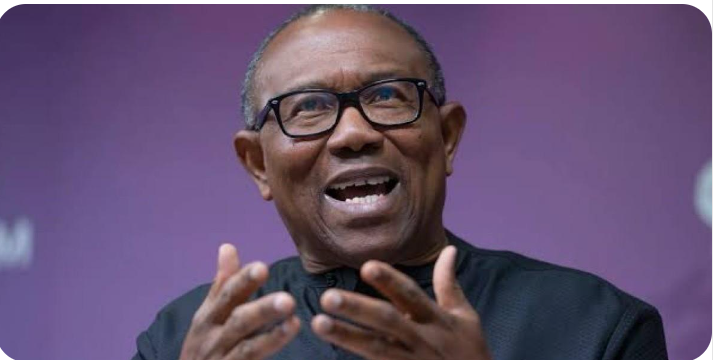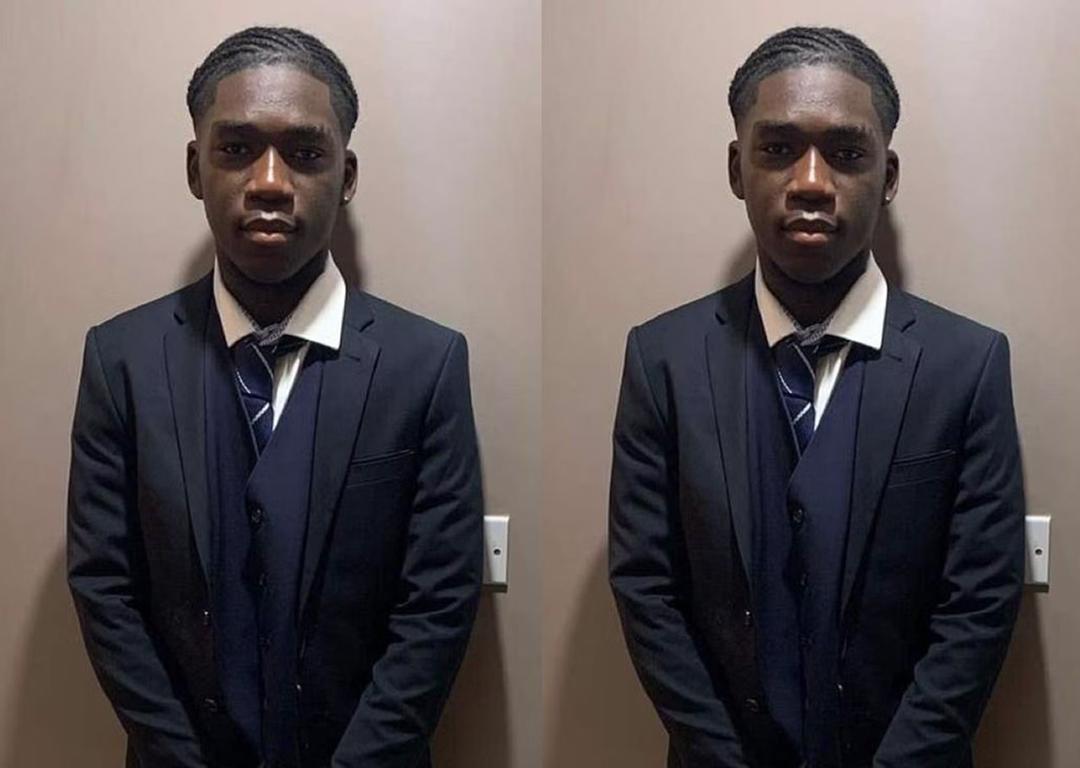
A Country on the Brink: Peter Obi Says Nigerians Live Like Refugees in Their Own Land
In a searing indictment of the current state of the nation, former Labour Party presidential candidate Peter Obi declared that Nigeria has become a crime scene where citizens are forced to live like refugees despite the absence of an official war. Speaking in Abuja during the public presentation of Obi:
In a searing indictment of the current state of the nation, former Labour Party presidential candidate Peter Obi declared that Nigeria has become a crime scene where citizens are forced to live like refugees despite the absence of an official war. Speaking in Abuja during the public presentation of Obi: The Political Change Agent, a biography penned by journalist Ike Abonyi, Obi’s message was a blistering reality check aimed directly at those in power.
“We’re not officially at war,” Obi began, “but Nigerians are living in IDP camps in their own country. Nigerians are refugees in Chad, in Cameroon. And the only reason is because we don’t have a government that cares for them.” His words struck a chord with many in the audience, capturing the despair that has become the daily reality for millions across the country.
The former Anambra State governor didn’t hold back as he painted a picture of a nation teetering on the edge of collapse, where both rich and poor are vulnerable in a system that shows no signs of stability. “Some people are dancing while the ship is sinking,” he said gravely. “When it finally goes down, it will consume everyone — rich or poor. I’ve seen this before in places like Beirut and Afghanistan. Crisis does not discriminate.”
Obi’s remarks came at a time when Nigerians are grappling with widespread insecurity, economic hardship, and a government often perceived as indifferent. His tone was urgent and his criticism laser-focused — a call to action directed at both leaders and citizens to wake up before it’s too late.
He drew sharp attention to the failures of governance, particularly in areas critical to the survival of ordinary people — healthcare, education, transportation, and infrastructure. “We use public resources to paint offices and build mansions,” he said. “Meanwhile, women die trying to give birth. According to a recent report, one woman dies every seven minutes in Nigeria during childbirth. That’s what we want to dismantle.”
It was a chilling reminder that statistics in Nigeria often translate to personal tragedies. Behind every seven-minute figure is a family mourning the loss of a mother, sister, or daughter, all while billions are allocated to nonessential government expenditures.
Obi’s criticism extended to the country’s leadership class, whom he accused of enriching themselves while producing poverty on a massive scale. “Our leaders in government and business are producing poverty. When people hoard money without creating value, they are fueling poverty. A functional economy must be built on the exchange of real value,” he said, urging a shift from rent-seeking behaviors to value-driven economic policies.
Addressing the thorny issue of fuel subsidies and currency instability, Obi stated clearly that while he supports subsidy removal, it must come with structural reforms and a crackdown on corruption. “Yes, I support removing fuel subsidy, but only after removing the criminality in the system. If we build confidence in the market and clean up corruption, the naira will stabilize. It’s happening in Ghana and Angola — why not here?”
The observation was pointed. For many Nigerians, subsidy removal has translated into soaring prices and increased hardship, with little to no improvement in infrastructure or public services. Obi argued that without restoring faith in the system and ensuring accountability, even well-intended policies will fail.
A particularly telling moment came when Obi discussed the decaying state of Nigeria’s transport infrastructure. Recounting a recent visit to Kafanchan, he observed the absence of trailers and trains transporting goods — a clear indicator of an unproductive economy. “Colonial masters built railways to move goods — cotton, granite, ginger. Today, they’re gone. We have no trains, no trailers, nothing. And we wonder why people are hungry?”
This narrative of systemic rot underpinned his broader message: Nigeria is not suffering due to a lack of resources, but due to a lack of responsible leadership. The infrastructure that once supported a growing economy has not just been neglected — it has been erased. And in its place, there is nothing but silence and suffering.
Obi\'s speech wasn’t just an exposé; it was a rallying cry. He urged Nigerians to hold leaders accountable, especially those seeking office for selfish reasons. “We must not allow people who want to make money from politics. If that’s your goal, you are part of the problem. This time, we will vote. The votes will count. We will be everywhere.”
His remarks were met with nods of approval and rounds of applause, not just for their content but for the courage it takes to speak plainly in a political climate where truth is often buried under propaganda and empty rhetoric.
The event was further punctuated by remarks from Professor Sam Amadi, former Chairman of the Nigerian Electricity Regulatory Commission, who described Obi as a man with the “profile, pedigree, personality, and passion” to lead Nigeria into a democratic revolution. Amadi emphasized that while the nation’s challenges are vast, they are not insurmountable with the right kind of leadership and collective sacrifice.
Obi’s tone throughout the address was one of frustration mingled with hope. Frustration that Nigeria continues to be plagued by problems rooted in leadership failure, and hope that change is still possible — if people are willing to act. He appealed to Nigerians’ sense of agency, imploring them not to give in to despair but to demand better and push for a new era of governance that puts the people first.
As the dust settles from the event, Obi’s words continue to echo. In a country where millions face displacement, economic hardship, and rising violence, his comparison of Nigeria to a crime scene isn’t hyperbole — it’s a reflection of a grim reality many are living daily.
Whether or not Peter Obi will return as a presidential contender in future elections remains to be seen, but one thing is clear: he is not done talking, and perhaps more importantly, he is not done fighting. And in a country where silence has often been the default, that alone makes him a voice worth listening to.
Share this post
Related Posts

“I Was Never Tonto Dikeh’s Friend” — Rosy Meurer Breaks Silence on Years-Long ‘Husband Snatching’ Claims
Nollywood actress Rosy Meurer has forcefully refuted long-standing allegations that she was once a close...

British Teenager Marcus Fakana Dies in Tragic Car Crash Months After Release From Dubai Jail Over Controversial Case
The United Kingdom has been thrown into mourning following the tragic death of 19-year-old Marcus...

“My Money No Waste”: Lady Celebrates Sister Who ‘Left School a Virgin and Returned the Same Way’ at 27
A Nigerian businesswoman has set social media buzzing after publicly celebrating her younger sister’s university...